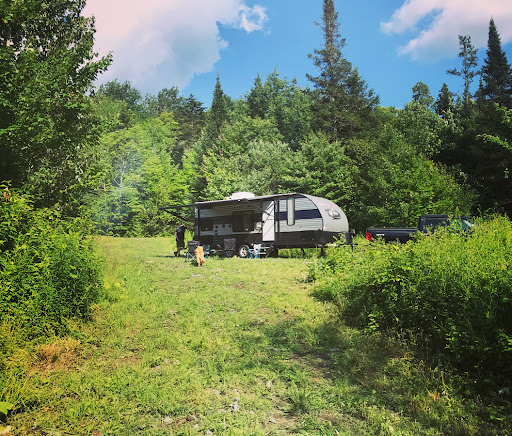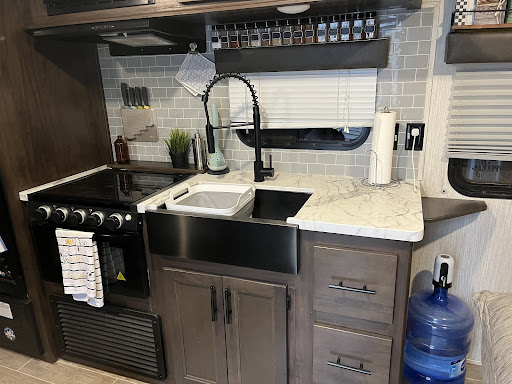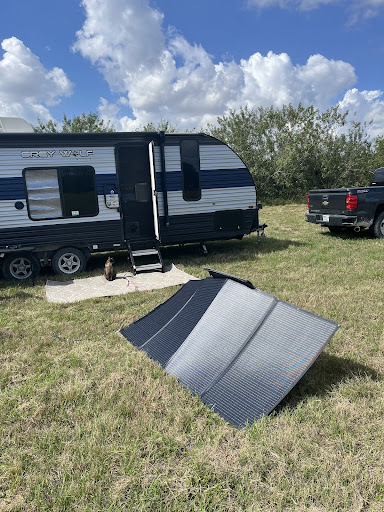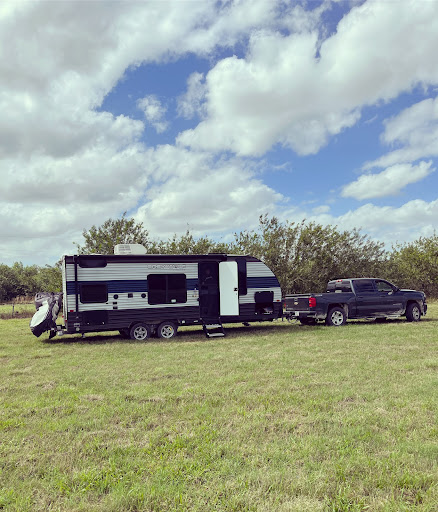
Boondocking is a great way for families to enjoy the great outdoors and save money on ever increasing campground costs. Maintaining good hygiene, conserving your resources, and packing enough supplies while boondocking can be a bit of a challenge for one person, but especially for a family of four! If you want to have a great experience during your travels, it is important to keep you and your family healthy, happy, and comfortable! Although boondocking offers wonderful opportunities to be off the grid and secluded in nature, it can require additional planning and sometimes a little creativity!
What is Boondocking?
Campgrounds are awesome. They provide constant flow of water and electricity, and provide a spot for you to dump your waste. Boondocking, however, is a more private and self-sustained camping experience that may be necessary in order to explore different places that don’t have campgrounds nearby. You must bring all of your own water with you, generate your own electricity, and keep your waste with you until you can find a dump site. While it may seem intimidating at first, with proper planning, determination, and an open-mind, anyone can boondock with ease.

Water
Conserving water is essential when boondocking, especially for families. The key to conserving water is being mindful of your usage and making small changes to reduce your water consumption. Our family just finished up 23 days of boondocking and our water usage was our biggest concern. Here are some tips for conserving water while boondocking:
- Limit showers: This is no surprise to anyone who has boondocked before, showers use up a lot of water! So consider taking shorter showers or using portable/ outdoor showers. Alternatively, use a wet wipe or washcloth to clean up in between showers.
- Public showers: Another option for families who aren’t able to limit showers or need to take them more frequently, is utilizing showers at local gyms, truck stops, or other public facilities. Some campsites may also offer shower facilities for a small fee. Truck stops usually charge a fee per person but we’ve found some that charge per shower and allow us to bring our whole family in one shower area which is super helpful as showering at truck stops can be pretty costly for the four of us.
- Use a water-saving faucet: Install a low-flow faucet in your RV or camper to conserve water while washing dishes or brushing your teeth. We installed a shower head that could be turned on/off with a switch which we have found to be very helpful when trying to use minimal water and taking fast showers.
- Collect and reuse water: Collect the water you use for rinsing dishes or washing hands and reuse it for cleaning or flushing the toilet. We have a collapsible bucket that we keep in our sink when we boondock which helps with soaking dishes and collecting water to reuse or empty outside to keep it out of our gray tank.
- Use paper plates and disposable cutlery: While it’s not the most eco-friendly option, using paper plates and disposable cutlery can significantly reduce water usage and the amount of dishes that need to be washed.
- Don’t let the faucet run: Turn off the faucet when brushing your teeth or washing dishes, and only use the water you need. This may seem like a given, however being extra mindful of your water usage means less trips to get more water, less times dumping your gray tank, and less time filling up your fresh water tank.
- Keep separate drinking water: We save our water in our holding tanks strictly for dishes, showering, and utilizing the toilet. We use a 5 gallon jug with an electric spout for all of our cooking and drinking water needs. This allows our 40 gallon fresh water holding tank to last much longer for the four of us.

Electricity, Propane, and Gas
Boondocking in remote locations without access to electrical hookups is absolutely possible. Every person or family will have different energy requirements based on the size of their rig, as well as their personal needs. The refrigerator in our RV runs entirely off of electricity, unlike many that use a combination of propane and electricity. For us, this means that we can never let our batteries die! We also have video game nights here and there, during which there is a Playstation 4 running, a TV is on, and a laptop or two is being charged. It can also get pretty cold at night sometimes and we have to turn our heat on, which uses a lot of electricity throughout the night.
Conserving electricity is crucial to ensure that you can power everything you need and you can continue to enjoy your trip. Here are some tips on how to conserve electricity when boondocking as a family:
- Use LED lights: LED lights use significantly less energy than traditional incandescent bulbs, and they also last longer. Make sure to switch off lights when you’re not using them.
- Use natural light: Instead of relying on artificial lighting during the day, try to make the most of natural light. Open up the windows and doors to let in as much light as possible. This can be somewhat counterintuitive though if you are in a hot location and want to keep the heat out of your RV.
- Use propane appliances: Propane appliances such as stoves, water heaters, space heaters and refrigerators can be much more energy-efficient than their electric counterparts.
- Charge devices efficiently: Charging devices like phones, tablets, and laptops can use a lot of energy and when each member of your family has one or two of those it’s important to use your energy efficiently. We do this by making sure that when it is time to turn on our gas generator, we charge up all battery packs, solar generators, laptops, portable game systems, and phones. We may have to charge some of these devices at different times so as to not overload our generator. We also tend to have a few devices charging in the truck while we drive around.
- Use a generator efficiently: It probably goes without saying that you should turn off your generator when everything is charged and you no longer need it on. Also, consider using a generator with an automatic shut-off feature that will turn it off when the batteries are fully charged. We have both a gas generator and a solar generator that we alternate as our main power supply. Our solar generator will power our camper for a few days before we have to charge it back up using our gas generator.
- Use energy-efficient appliances: When purchasing appliances for your RV, look for models that are specifically designed to be energy-efficient.
Waste and Dumping
Maybe you have heard the expression, “If it’s yellow, let it mellow, if it’s brown, flush it down.” Gross right? Well, it’s totally applicable here, so long as it doesn’t make the bathroom too stinky, we recommend you give it a shot.
Here are a few more tips about your waste tanks while boondocking.
- Monitor your tank levels: Invest in a good quality tank monitor system or use a manual gauge to keep track of your tank levels. This will help you avoid overfilling your tanks and prevent any unpleasant surprises.
- Practice responsible waste disposal: When it’s time to dump your tanks, make sure you do it in a responsible and legal manner. Use designated dump stations or other approved facilities, and never dump your tanks in the wilderness or near water sources. There are many gas stations, campgrounds, and other facilities that offer dump stations for RVers that usually cost a fee of about $10.00 or so to utilize.
- Consider using a composting toilet: Composting toilets are an eco-friendly and convenient alternative to traditional RV toilets. They require no water and produce compost that can be safely disposed of in nature. We hear such great things about these things especially for boondockers, it eliminates the hassle of dumping your black tank and can significantly improve your off grid experiences as well as the previous limitations of your black tank and water capacity.
- Use tank treatments: Tank treatments can help break down waste and control odors in your tanks. Look for natural or biodegradable options that won’t harm the environment.
- Plan your route carefully: Before heading out, research the availability of dump stations and other facilities along your route. This will help you avoid getting stuck with full tanks in the middle of nowhere.

Altogether, it is important to understand that you will definitely run into problems while boondocking. Things will break, you will forget to charge up something when you should have, or the campground that you drove a couple of hours to get to will be closed for a few days all of a sudden! This leads us to our biggest boondocking tip… It’s all part of the adventure! Go with the flow! Roll with the punches! However you want to say it is fine, but the point is that you have to be able to handle the stress, and look at it as part of the journey.
We have learned so much from all of the various things that have gone wrong, and we wouldn’t change anything. Again, boondocking can seem intimidating, but with the right mindset, it can be an incredibly liberating experience. If you decide to boondock, we recommend that you start small, do some planning, have fun with it, and as always happy trails!
Read more from The Happy Trails Family:
How Your Kids Can Become a Junior Ranger with Happy Trails Family
Why We Chose a Travel Trailer with Happy Trails Family
Or learn more about Family Boondocking:
Tips for Boondocking With the Whole Family
Best Boondocking Gadgets for a Comfortable Camping Experience with Vanna Mae

